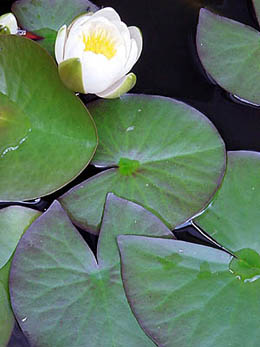 by Joann Flora, Acupressure, Nutrition Counseling, Qigong October 18, 2002
Massage has been surging in popularity since the 1970's as people realize benefits of health and general well-being. The term massage refers to a very wide range of therapeutic activities that manipulate the soft tissues of the body. Some of the more well known styles are Swedish, sports, electro-, hydro-, reflexology, meridian, Shiatsu, and the list goes on. Why should anyone receive massage? It is relaxing, good therapy for affected muscles and joints, alleviates pain, helps to drain the lymphatic system, stimulates immune function, increases circulation, helps clear edema, loosens and stretches contracted or adhered tissues, and it feels like a mini-vacation. Massage is a natural reaction to that which does not feel good against our skin. Remember being small and falling. The first thing the nearest grownup wanted to do was "let me rub that for you". Or you may have been directed to "rub that so it will stop hurting". The nice thing about massage is that unlike drugs, one doesn't have to be ill or feel bad to benefit from it. Though it can be used to rehabilitate, it is also an excellent preventive measure. Keeping the connective tissue loose, the circulation free, and the extremities free of fluids can go a long way in maintaining general health. It is an outside-in approach to health. Are there cautions with massage? Of course. Physically manipulating the tissues of the body requires training and skill; the practitioner understand human physiology and anatomy. Trained therapists are licensed, certified, and otherwise documented as having this background. The therapist must know to avoid loosening blood clots and anticipate those who may be prone to them. They understand the importance of avoiding tumor sights, open wounds, and inflammation. It takes training to benefit soft tissue without compromising an unstable joint or vertebral body, thus adding to an existing injury. Massage therapists are trained health care providers. Is massage for everybody? Probably not. The best massage is received lying down, nude, covered with a sheet. Not everyone is comfortable unclothed. Not everyone cares to be touched in this way by someone outside their intimate circle. Some therapists offer seated massage (using a special chair) and work through the clothing to accommodate this need. They may even offer house or office calls using their chair. But for those who are uncomfortable with their bodies or being touched by others, massage may produce feelings of stress, raise trust issues, or otherwise produce feelings of discomfort. Whether or not to receive massage is a very personal and individual decision. Picking a massage therapist from the phone book is not nearly as desirable as being referred by someone else that you trust and respect. If it's for you, it can be a wonderfully beneficial to maintain good health. Next week, acupressure.
|
||
